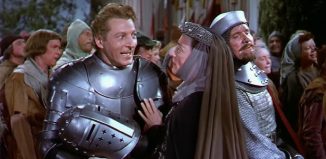Big men do cry
Abraham Lincoln did it. So did Jon Stewart, Dave Letterman, Walter Cronkite and Lou Gehrig.
On July 4, 1939, as he announced that he considered himself “the luckiest man on the face of the earth,” the Yankees’ Gehrig, known as the Iron Horse, reached up to the bridge of his nose and wiped away tears.
The list of those who cry in public includes influential men with impressive pedigrees. Yet it is the exception rather than the rule for men to cry.
Recently, I attended a wedding where not only the groom cried as he read his vows, but the father of the bride also shed tears when he gave a speech during the reception. The groom was barely a few words into his vows when his voice cracked.
The audience waited, willing him to go on and all of them, except my son who was at his first wedding and was studying his image in the mirrored ceiling, appreciated the struggle to speak.
The man on the threshold of becoming a husband stopped several times, as he made fun of the tears and the mess he’d become, giving the audience a chance to laugh with him.
I have experienced larger moments, both positive and negative, when I felt such a strong flood of emotions that filled my eyes with tears and made it difficult to speak. Clearly, however, it’s not a regular occurrence because my son asked me when, or if, I cried. Part of that, I suppose, comes from my reflexive need to turn off the tears in public.
I grew up at a time when boys and men had to experience something extraordinary — either positively or negatively — to shed public tears. We had examples like the actor Alan Alda, who shed gut-wrenching tears in the final episode of “M*A*S*H.”
I recall being unable to say more than a few words to my mother when I called her from a pay phone to tell her that she had a granddaughter. Facing the corner of a phone booth, I shed tears of joy, especially when I said my daughter’s name for the first time. My mother must have heard my unsteady voice and asked, in the silence that followed, if I’d like her to come visit us in the hospital. Wiping away tears and nodding, I grunted something like “uh-huh.”
Men cry and, for the same physiological and psychological reasons as women, we benefit from that release, giving us an outlet for the literal flood of emotions.
At that recent wedding, the father of the bride knew when I spoke to him at the cocktail hour that he’d struggle to get through his speech. When the time came, he thanked everyone for coming and described the connection he felt with his daughter. He could barely finish a sentence before his lips turned down and the tears fell beneath his glasses.
He and his new son-in-law clearly started off this marital connection with something in common: tears at the wedding.
I was sure when his first daughter was born that he felt the same way at the beginning of her life, as he contemplated the excitement and terror at the responsibility that came from becoming a father.
As he considered the start of her married life he seemed, like Steve Martin in “Father of the Bride,” to have an awareness of these new steps which, some day, may include her coming to terms with a little life wrapped in her arms.
His voice broke at the end of his speech when he said his daughter would “always be my girl.”






